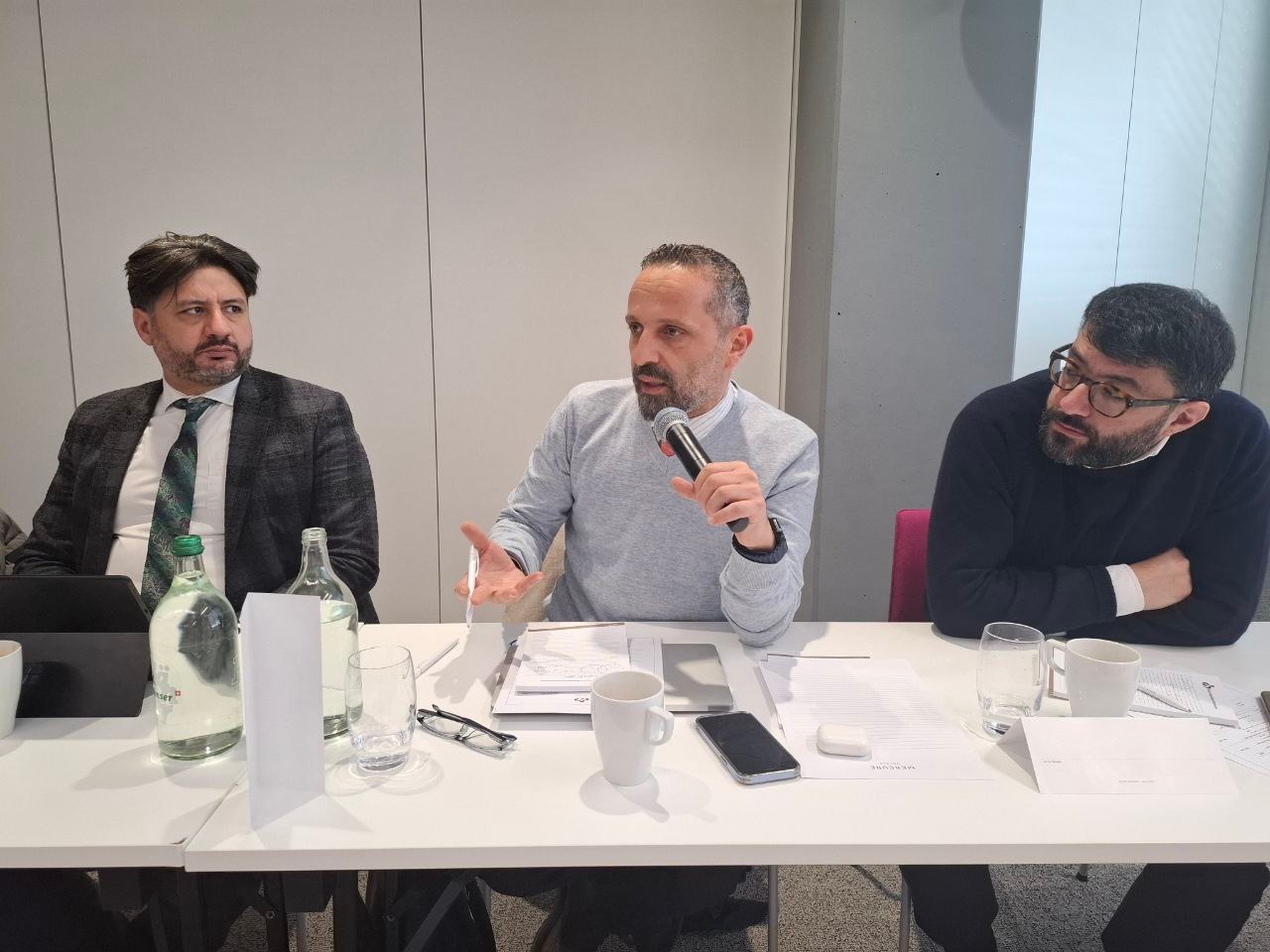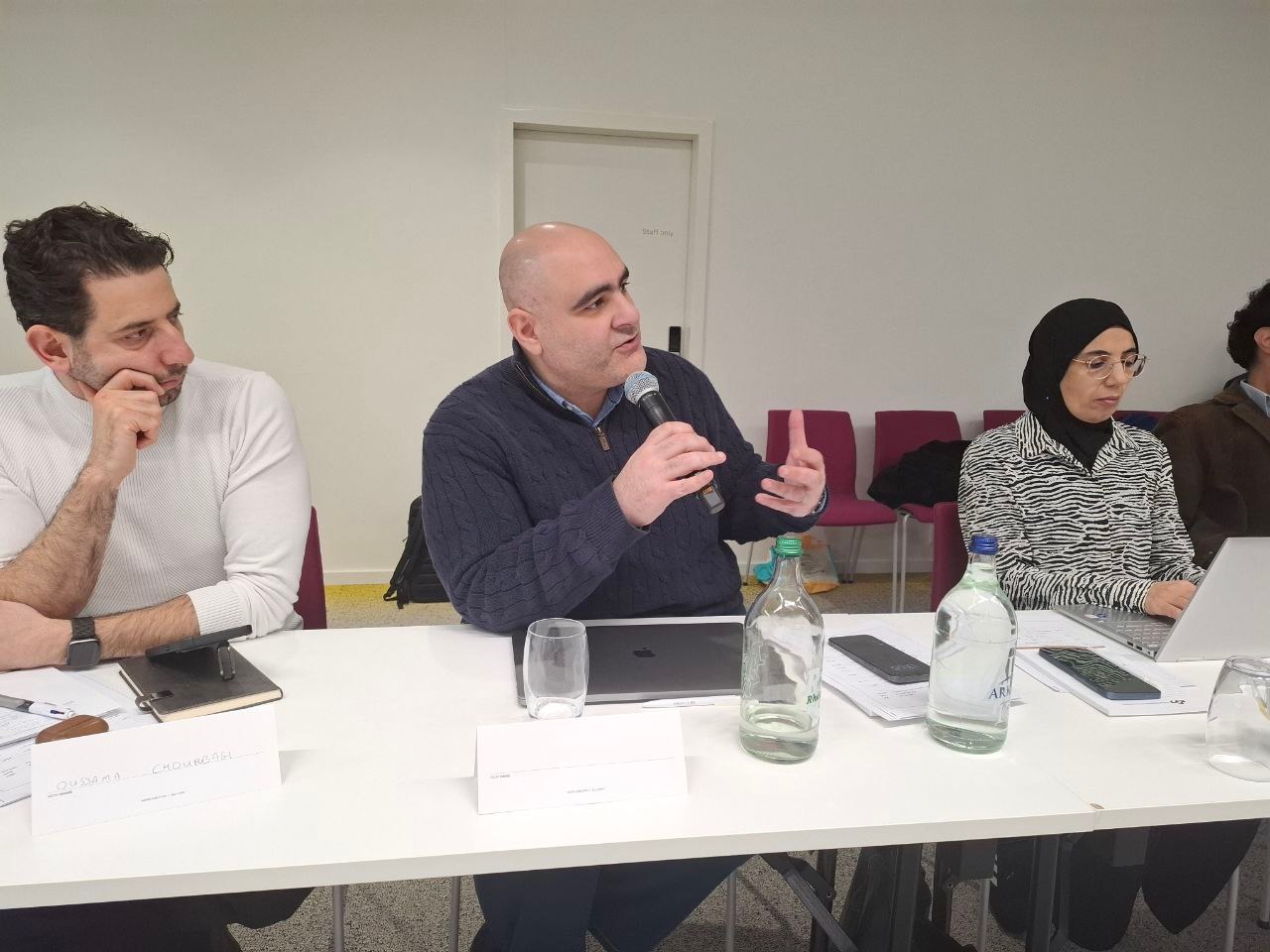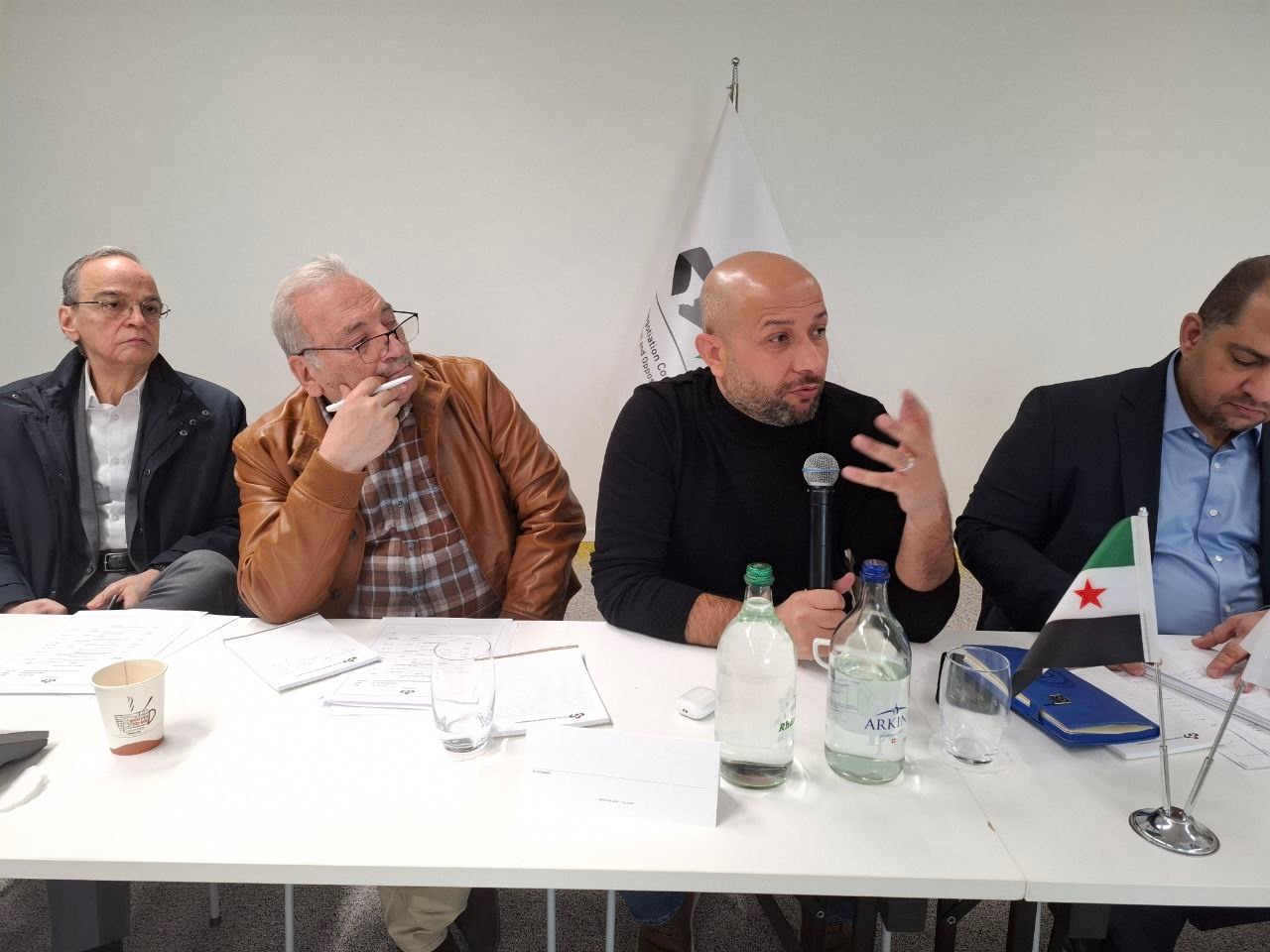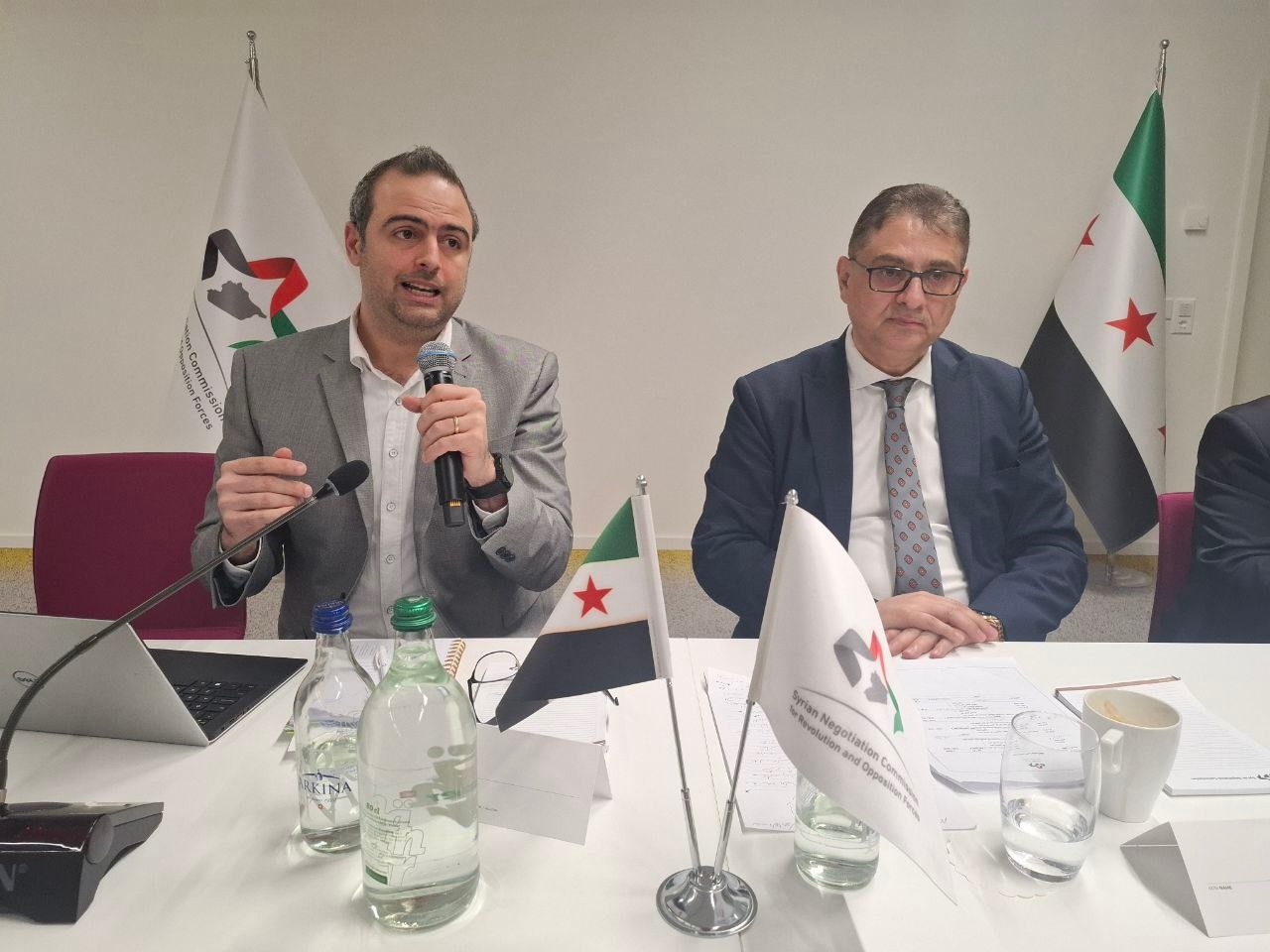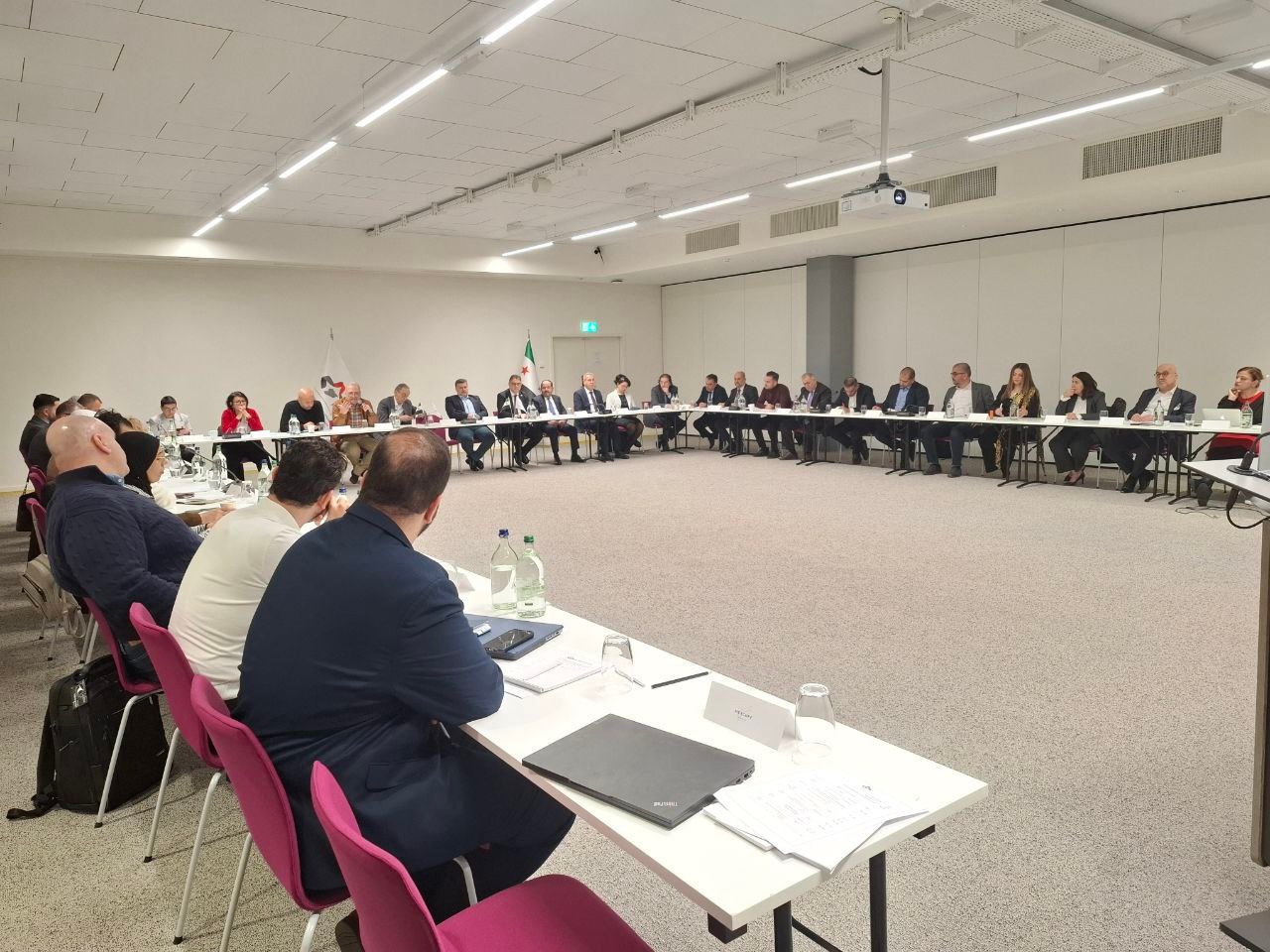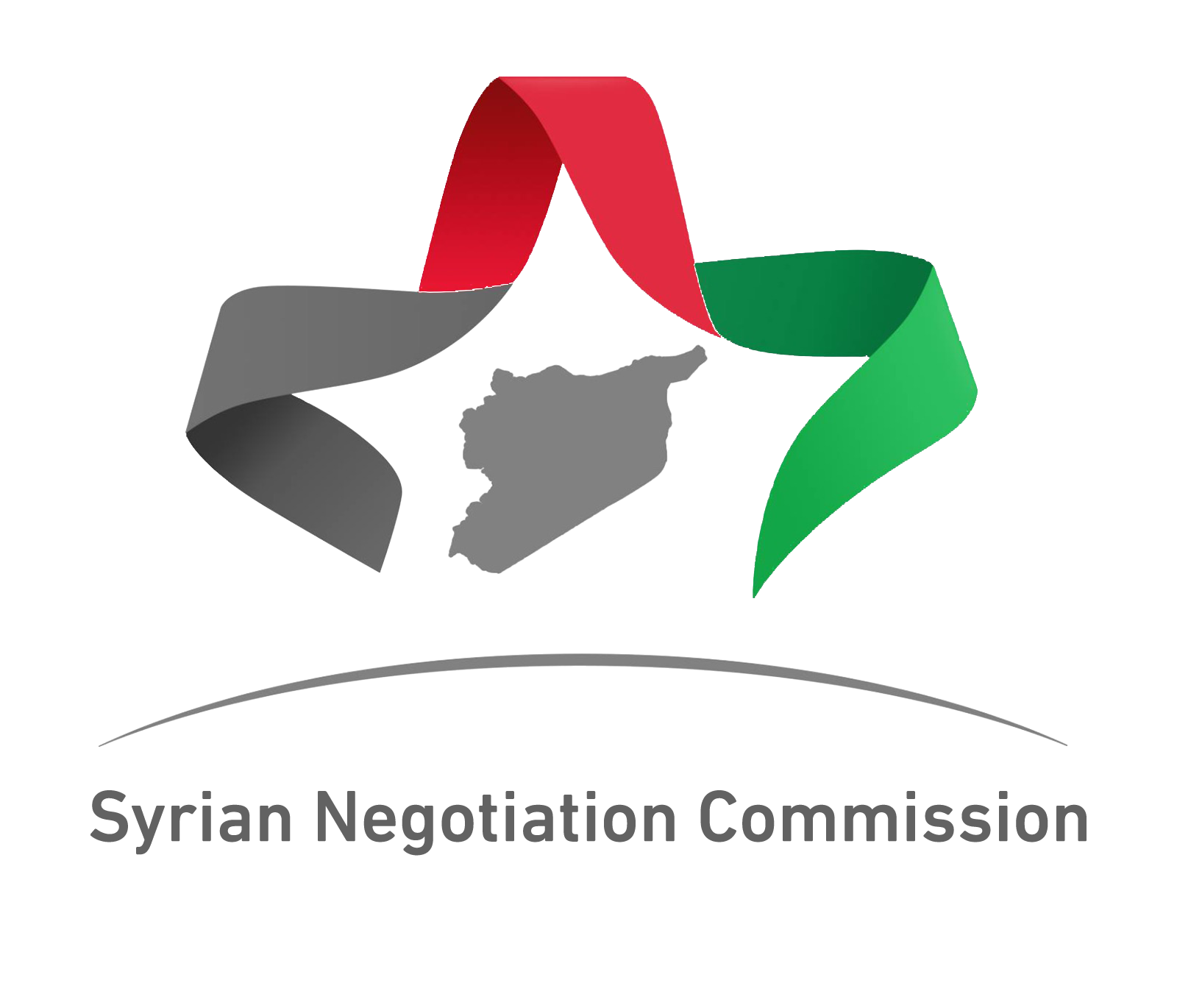The SNC meets with experts and researchers and discusses:
The future and scenarios of the political solution... with a joint roadmap
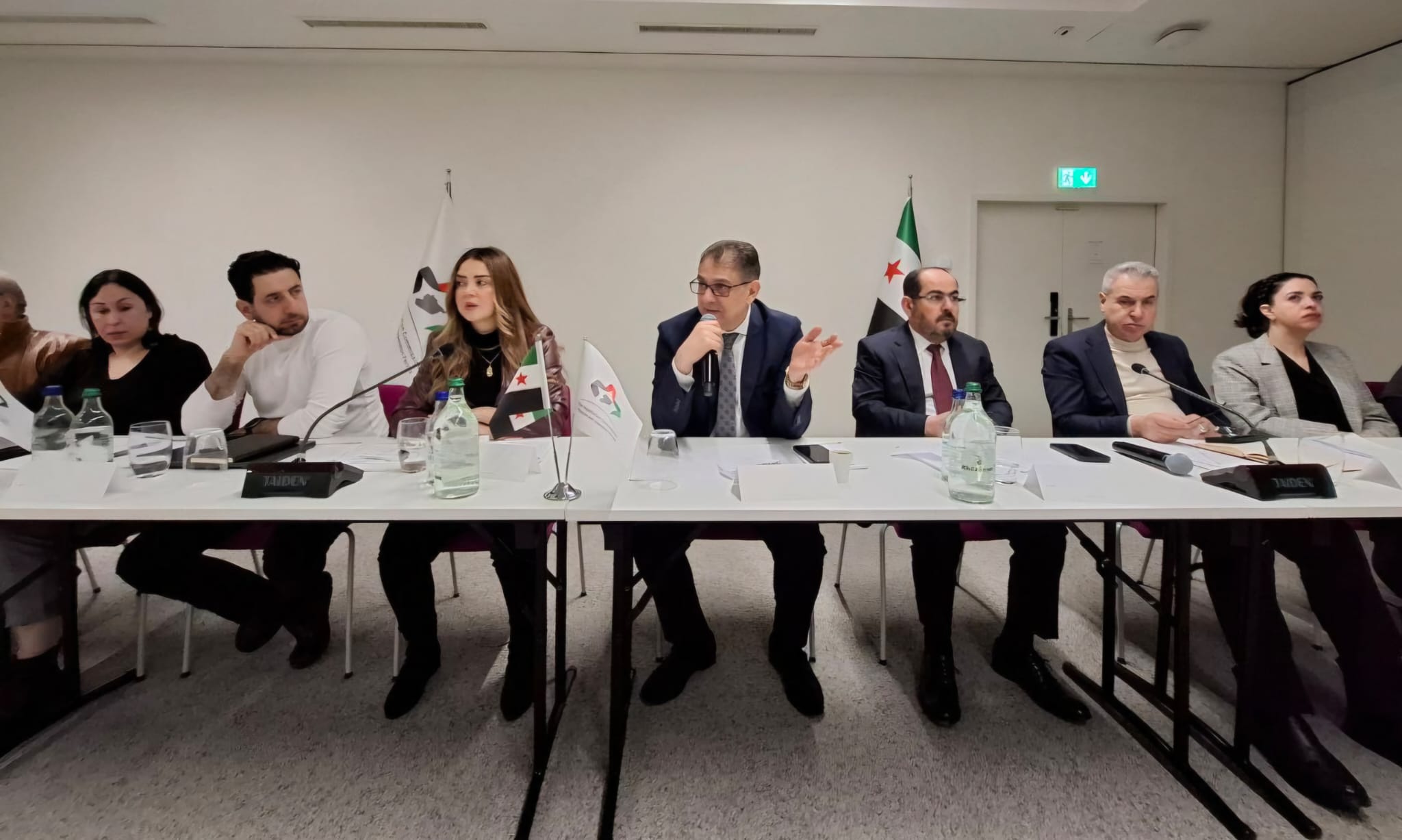
November 17, 2024
Yesterday, Monday, the Syrian Negotiating Commission held a workshop in Geneva, attended by a large number of experts and researchers in political and economic fields, and civil society organizations, with the aim of deepening partnership and interaction between Syrians, and discussing many basic issues related to the political process and issues of supporting and empowering Syrians in light of the critical circumstances that the Syrian people are experiencing in all regions.
The workshop was attended by the head of the Commission and its members, as well as directors of civil society institutions and organizations, study and research centers, and human rights and civil organizations concerned with the affairs and issues of Syrians. During the workshop, the attendees discussed ways to develop joint work to serve the interests of Syrians and confront political and economic challenges.
At the opening of the workshop, the head of the Syrian Negotiating Commission, Dr. Badr Jamous, stressed the Commission’s constant endeavor to make these meetings frequent and periodic, given the Commission’s conviction that civil society groups, civil organizations and experts are true partners of the Commission and active contributors to making its policies and strategies, let alone the importance of enhancing cooperation between Syrian actors, indicating that the goal is to support the political process from all sectors through a single strategy aimed at reaching a free, democratic Syria that guarantees the rights of all its components and ensures their security and peace, a state of justice, equality and law.
He pointed out the importance of the results that could result from consultations with the Syrian community that could be presented to the international community, to confirm that the Syrians see the political solution as the basis, and without a political solution there will be no peace in Syria and the region, and international resolutions must be implemented, most notably the Geneva Statement and Resolution 2254 in a full and strict manner, stressing the need for the Syrians to be a unified front, and for there to be agreement between the tracks and strategies.
Dr. Jamous reviewed the international meetings held by the Commission during the past months, in Geneva, Brussels, Berlin, Erbil and New York, and with the European Union and the United Nations, in addition to the consultative meetings with the Syrian civil society in Berlin, Brussels, Istanbul and others. He also reviewed what the UN envoy is doing and the importance of his monthly reports to the Security Council to keep the Syrian issue among the priorities of the UN Security Council in an official and clear manner.
He presented the Commission’s vision and perception of the general regional situation, the relationship with the new US administration, the Commission’s relationship with the Syrian interior, its full support and backing for the peaceful movement in Sweida, and the work of the Commission’s offices in the Elections Committee, the Legal Office, and the Detainees Committee.
In addition, the Secretary of the Negotiating Commission, Safwan Akash, spoke about the necessity of Russian-American consensus to implement the Geneva Statement and Resolution 2254, considering that each party is capable of disrupting the political process. He stressed the importance of the opposition dealing seriously with this problem, and seeking by all means to restore the Syrian decision, and the presence of a unified leadership with a unified vision and popular legitimacy, stressing the necessity of a strong civil society working in harmony with the political forces, because it leads to deepening democratic work, and this helps the political community to perform its tasks.
A session was held on regional transformations and the impact of targeting Hezbollah on the Iranian presence in Syria, in which the background of targeting Hezbollah and its regional and Iranian repercussions were discussed, as well as the changes that will follow at the Syrian level, and the necessity of having a vision and prior readiness for the Syrian opposition to deal with all possibilities, and the importance of defending the unity of Syria, its land and people.
Another session was held on the proposals of a safe and neutral environment outside the framework of the political solution, in which the impossibility of ensuring security and stability without achieving a political solution in accordance with international resolutions was discussed, and that some areas in Syria are relatively safe does not mean that Syria is safe for Syrians, and that multifaceted risks are still strongly present in most Syrian areas, and some proposals saw that some countries are using this term to get rid of the refugee problem to suggest that there is a possibility for their safe return.
A final session was devoted to discussing the reality of education in the curricula in all regions of Syria. The speakers stressed the importance of separating ideologies from the educational process, the need for the international community to support the education sector significantly in all regions, and for the Syrian regime not to monopolize the majority of the international aid allocated to the education sector. It is also necessary to have unified education that is free from regionalism and ethnicity, and to provide significant support to youth and develop their skills and projects, because education is the key to building peace in Syria, and the need to reach national approaches appropriate for all Syrians.
The problems of asylum and refugees were discussed in a special session, which addressed the conditions of refugees in Lebanon, those fleeing it, and those returning to Syria, and the need to provide additional support for them, and to ensure good and humane treatment for all Syrian refugees in neighboring countries and in various countries of the world, and to work to prevent the Syrian regime from exploiting the refugee tragedy in order to achieve political and economic gains for itself.
The workshop will continue its work over two days, in successive sessions that will discuss the topic of early recovery from the perspective of the political process, the objectives of international sanctions and their impact. The session also focused on the opportunities and challenges facing the Syrian opposition in the political solution, how to confront these challenges in a collective consultative manner and the importance of preparing for all scenarios and dealing with them.
Media Office
